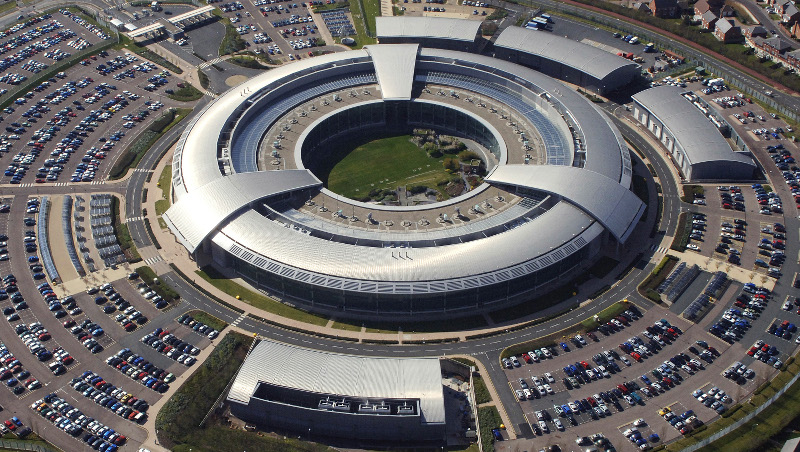GCHQ boss denies Snooper’s Charter will weaken encryption
Head of GCHQ claims encryption is not under attack, but urges tech industry co-operation


Sign up today and you will receive a free copy of our Future Focus 2025 report - the leading guidance on AI, cybersecurity and other IT challenges as per 700+ senior executives
You are now subscribed
Your newsletter sign-up was successful
Robert Hannigan, the director of UK spy agency GCHQ, has hit out at claims his agency and its counterparts in the USA are attempting to break strong encryption.
Speaking at MIT, Hannigan called the use of the term 'backdoor' in reference to encryption an overused and misapplied metaphor that "illustrates the confusion of the ethical debate in what is a highly-charged and technically complex area".
"I am not in favour of banning encryption. Nor am I asking for mandatory backdoors," he added. "I am puzzled by the caricatures in the current debate, where almost every attempt to tackle the misuse of encryption by criminals and terrorists is seen as a 'backdoor'."
Hannigan called on the memory of Turing and his Bletchley Park team who cracked the German enigma code during World War II to support his point.
"The exploitation of a few key flaws in the otherwise brilliant design of the commercial Enigma machine ... enabled Allied victory, and not only, as Eisenhower acknowledged, saved thousands of Allied lives, but also brought the Holocaust to an end before the Nazis could complete their task," said Hannigan.
"Even though it was very large scale, it would be hard to argue that this was not proportionate, particularly in wartime," he added.
Hannigan also denied that the Investigatory Powers Bill, also known as the Snooper's Charter, would give any new encryption-busting powers to intelligence agencies, which has been one of the key criticisms of the legislation.
Sign up today and you will receive a free copy of our Future Focus 2025 report - the leading guidance on AI, cybersecurity and other IT challenges as per 700+ senior executives
Instead, he said it "tries to put in one place powers which were spread across numerous statutes".
"On encryption, it simply repeats the position of earlier legislation: where access to data is legally warranted, companies should provide data in clear where it is practicable or technically feasible to do so," said Hannigan. "No-one in the UK government is advocating the banning or weakening of encryption."
Hannigan did suggest, however, that the tech industry and the intelligence community should be working more closely together and try to find a workable solution to their differences.
"We need a new relationship between the tech sector, academia, civil society and government agencies. We should be bridging the divide, sharing ideas and building a constructive dialogue in a less highly-charged atmosphere," said Hannigan.
Stating that the UK government is "fully committed" to such a collaborative approach, Hannigan added: "This will be a dialogue that starts from the position I've set out today - that the government and its agencies support, and want to actively promote, effective encryption."
"For my part my promise today is to engage in that process with the tech industry openly, respectfully, and in good faith," he concluded.
Read Next: Apple vs FBI
Image Credit: By Ministry of Defence (http://www.defenceimagery.mod.uk/) [OGL], via Wikimedia Commons

Jane McCallion is Managing Editor of ITPro and ChannelPro, specializing in data centers, enterprise IT infrastructure, and cybersecurity. Before becoming Managing Editor, she held the role of Deputy Editor and, prior to that, Features Editor, managing a pool of freelance and internal writers, while continuing to specialize in enterprise IT infrastructure, and business strategy.
Prior to joining ITPro, Jane was a freelance business journalist writing as both Jane McCallion and Jane Bordenave for titles such as European CEO, World Finance, and Business Excellence Magazine.
-
 Cyber pros say the buck stops with the board when it comes to security failings
Cyber pros say the buck stops with the board when it comes to security failingsNews Fines, sanctions, and even prosecution are all on the table when it comes to cyber failings, practitioners believe
-
 Top data security trends
Top data security trendsWhitepaper Must-have tools for your data security toolkit
-
 Why bolstering your security capabilities is critical ahead of NIS2
Why bolstering your security capabilities is critical ahead of NIS2NIS2 regulations will bolster cyber resilience in key industries as well as improving multi-agency responses to data breaches
-
 SEC data breach rules branded “worryingly vague” by industry body
SEC data breach rules branded “worryingly vague” by industry bodyNews The new rules announced last week leave many questions unanswered, according to security industry experts
-
 Crackdown on crypto needed to curb cyber crime, says expert
Crackdown on crypto needed to curb cyber crime, says expertNews Threat actors would struggle to generate money without the anonymity provided by unregulated digital tokens, but such a move would require worldwide buy-in
-
 The gratitude gap
The gratitude gapWhitepaper 2023 State of Recognition
-
 2022 Public Sector Identity Index Report
2022 Public Sector Identity Index ReportWhitepaper UK Report
-
 UK, US condemn Iran for ‘unprecedented’ cyber attack against Albania
UK, US condemn Iran for ‘unprecedented’ cyber attack against AlbaniaNews The Balkan nation has cut ties with Iran following the hack, which took down national infrastructure and exposed government information

